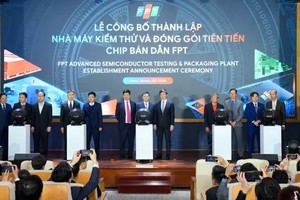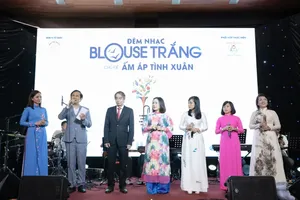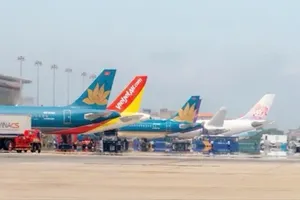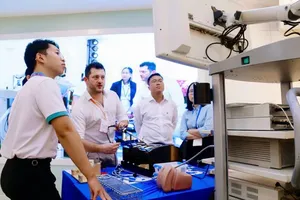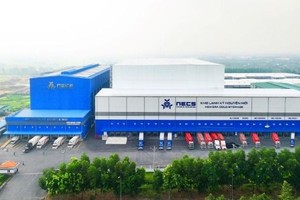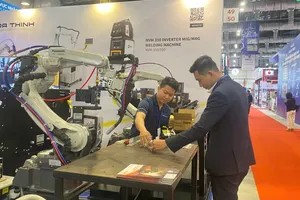Becamex IDC, a leading Vietnamese industrial and urban real estate developer, has officially partnered with the International Finance Corporation (IFC), a member of the World Bank Group, to establish a robust Environmental, Social, and Governance (ESG) framework for the development of eco-industrial parks across Vietnam.
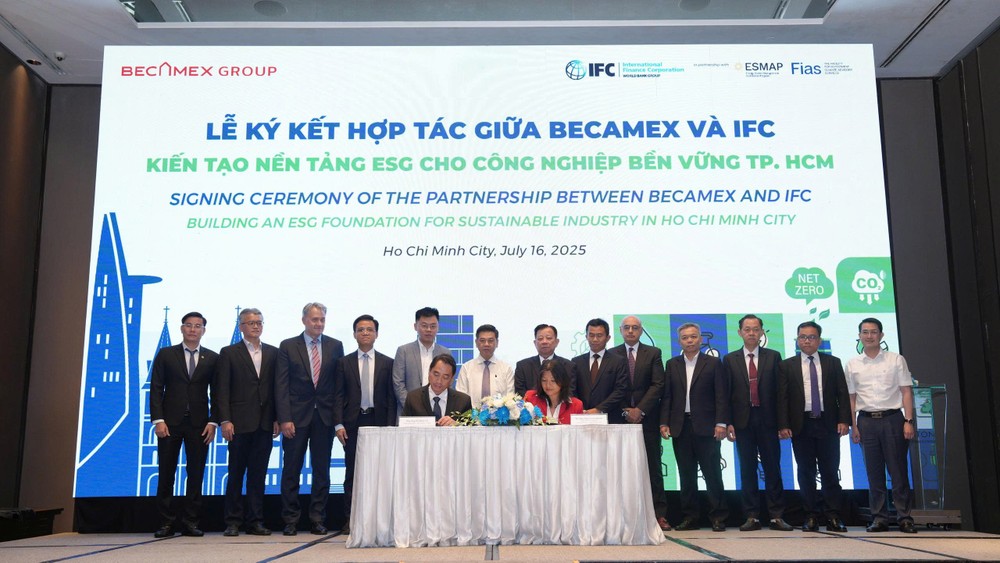
This marks a significant milestone in the local industry’s green transition strategy, targeting sustainable development and environmental impact reduction.
The partnership is the outcome of ongoing collaboration since 2022, during which both parties have conducted technical assistance programs, including pre-feasibility and feasibility studies for Vietnam's first Eco-Industrial Park (EIP) model. The new agreement expands the scope of cooperation, aligning with global standards and laying the foundation for broader access to green financing.
Under this partnership, IFC will support Becamex in implementing the Global Eco-Industrial Parks Assessment and Certification (GEIPAC) program. Up to five industrial parks will undergo preliminary assessments based on international EIP standards. The results will help identify strengths, gaps, and improvement opportunities in management, environmental, social, and economic performance, forming the basis for enhancing operations, attracting investment, and driving sustainable growth.
The expanded agreement aims to scale up pilot models to meet global standards and strengthen the Environmental, Social, and Governance (ESG) foundation for sustainable industry in Ho Chi Minh City and the Southern key economic region.
At the signing ceremony, Chief Executive Officer of Becamex Nguyen Hoan Vu reaffirmed the group’s dedication to embedding international sustainability standards across its operations. He expressed optimism that the collaboration would enhance ESG competencies and facilitate access to green financial resources, thereby advancing inclusive and responsible growth.
The strategic partnership with IFC marks a significant step in fortifying the ESG framework within the Becamex–VSIP ecosystem, while fostering vital linkages to sustainable financing for long-term development.
The Chief Executive Officer of Becamex noted that Ho Chi Minh City is entering a transformative phase of development characterized by the integration of regional, urban, and industrial planning. As a city-owned enterprise, Becamex reaffirms its commitment to strengthening collaboration with Ho Chi Minh City on key strategic initiatives particularly the development of intelligent, eco-industrial–urban–service models that align with Vietnam’s pledge to achieve net-zero emissions by 2050. The group will continue to advance innovative approaches in master planning, infrastructure investment, and governance, while harnessing international support to scale pilot models into versatile, city-wide solutions within the industrial–urban ecosystem.
On behalf of the World Bank, Senior Manager for Innovation and Business Development, Climate Business Department of International Finance Corporation Diep Nguyen van-Houtte highlighted the critical role of eco-industrial parks in enhancing Vietnam’s green competitiveness, reducing greenhouse gas emissions, attracting high-quality investments, and creating better jobs. She affirmed that implementing the EIP model is a key driver for Vietnam’s green industrial transformation and global supply chain positioning. IFC is proud to partner with Becamex in advancing this vital shift, bringing economic and environmental benefits.
Also addressing the ceremony, Vice Chairman Nguyen Van Dung of the Ho Chi Minh City People’s Committee commended the strategic partnership between Becamex and IFC, highlighting its alignment with the National Assembly’s recent resolution to establish the Vietnam International Financial Center in Ho Chi Minh City and Da Nang. He emphasized that the collaboration represents a pivotal step in enhancing the city’s capacity to mobilize resources and implement impactful projects—not only as an emerging financial center, but also as a model for sustainable green industrial–urban development.
He conveyed his hope that stakeholders will continue to pursue projects beyond traditional industrial zones, with a view to fostering a greener urban environment and advancing the integration of pilot models into scalable, city-wide solutions.


